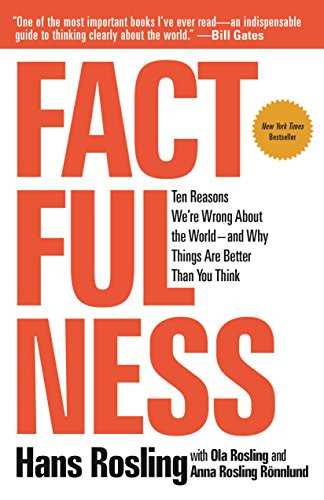Ehrlich, Goodall, and Thanos: Superspreaders Of The Deadliest Virus In History
Immunize yourself with facts and a true understanding of the relationship between population and resources.
Paul Ehrlich and Jane Goodall look like harmless grandparents. But looks can be deceiving. They both advance an agenda based on the ideology that there are too many people on the planet. Their claims of impending doom sound much more like Avengers supervillain Thanos than kind senior citizens. The ideology of scarcity is not a physical virus, it’s a virus of misperception. It has been the most dangerous virus in history and Ehrlich and Goodall are superspreaders. Their proposals are actually much more deadly than Thanos’s plan to “correct” life in the universe.
Thanos wanted to reduce population by 50 percent. Ehrlich would like to see population reduced by 75 percent to only 2 billion. The doomporn queen is Goodall. In a 2019 Population Matters conference Goodall noted, “It’s absurd really, to think that there can be unlimited economic development on a planet with finite natural resources, and the fact that human populations are still growing on this precious planet of ours is something that everyone should be aware of.” Goodall remarked at the 2020 World Economic Forum that “All these things we talk about wouldn’t be a problem if the world was the size of the population that there was 500 years ago.” There were 461 million people on the planet in 1500. That would be a 94 percent reduction in population. Thanos wanted to eliminate one in two, Ehrlich wants three out of four, and Goodall wants 17 out of 18. That’s a very bad grandma.
Goodall is one of the world’s foremost experts on chimpanzees. She spent six decades studying chimpanzee groups and has written extensively about the similarities between primates and humans. But the similarities end when you realize that human beings create valuable resources and chimps don’t. Simply put: Chips don’t innovate. Chimpanzees live in a fully Malthusian world where resources are fixed by the natural world. When resources run out, chimp chaos ensues.
Goodall believes that she can apply what she learned from chimp populations directly to human civilizations. To anthropomorphize is to ascribe human form or attributes to an animal, plant, or material object. Chimpanzees have very little in common with human beings in terms of our ability to discover, create, and share knowledge. Human beings have written languages, contracts, rule of law, property rights, and free markets. We also have moral systems that recognize rights and respects the dignity of every human being.
Human beings can transcend the finite atoms constraint because human beings can innovate. Our resources are not limited by the number of atoms on the planet. We expand resources without limits because resources are created when you add knowledge to atoms.
Many seem to think they can reduce population dramatically and retain all of the benefits and knowledge and standard of living we enjoy today. Reducing our population by just one percent could be catastrophic. Why? If a supply chain consists of 100 links, removing one link renders the whole chain worthless. COVID lockdowns taught us this truth.
Goodall makes the same mistake Ehrlich made when he applied the world of butterflies to the world of human beings. When you destroy people, you destroy all the individual bits of knowledge they possessed. When you limit population, you prevent potential knowledge from being discovered. Elon Musk recognized this fact when he argues “There are not enough people.”
If Ehrlich, Goodall, and Thanos understood that resources are not about atoms, but about knowledge, they would see human beings as our most valuable resource. People that are free to innovate are continuously discovering and sharing valuable new knowledge lifting all of us out of poverty. With this deeper understanding of the relationship between resources and population, the trio might have used their power and influence to create more life, not less.
You can immunize yourself against the deadly ideology of scarcity with two great books. Start is with Factfulness by Hans Rosling.
Rosling’s principles will allow you to grow antibodies to recognize when you’re being manipulated by someone frightened of the future because of their hypothetical model. COVID lockdowns taught us not to trust these people with totalitarian power to deprive people of their human rights and dignity.
Next read Bjorn Lomborg’s books. Clear and coherent, our friend from Copenhagen makes case after case for not being afraid. Human beings are extremely adaptable. We’ve overcome tremendous challenges and grown to become healthier, safer, and richer. His most recent is False Alarm: How climate change panic costs us trillions, hurts the poor, and fails to fix the planet.
These two books provide a great foundation for our new book, Superabundance, available at Amazon. Jordan Peterson calls it a “profoundly optimistic book.”
To get full access to all posts, you can subscribe for $5 a month or $50 a year.
Gale Pooley is a Senior Fellow at the Discovery Institute and a board member at Human Progress.







